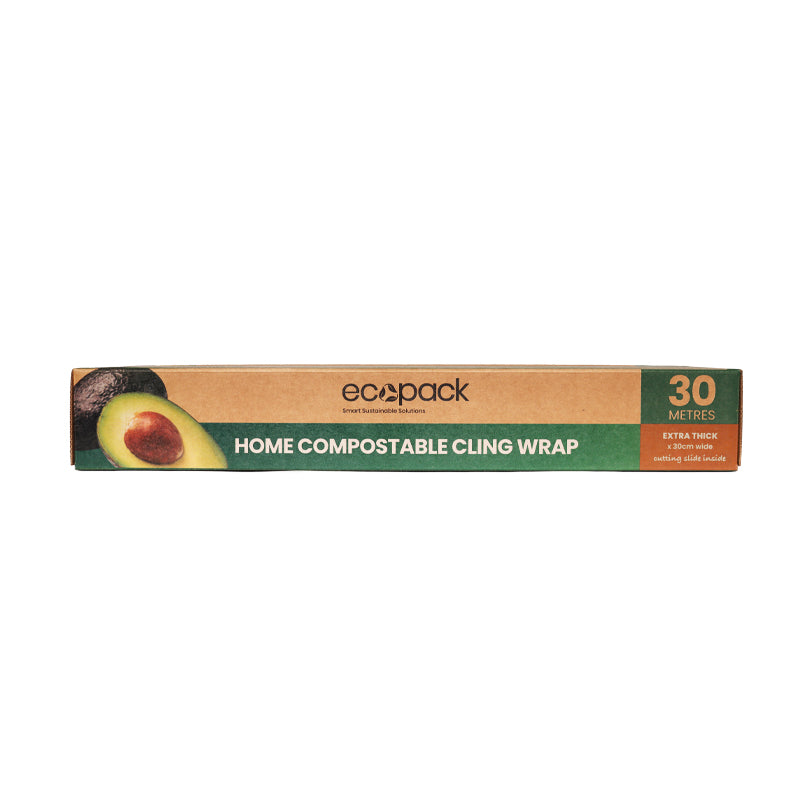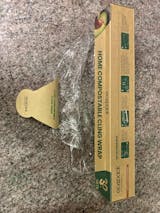
Ecopack Home Compostable Cling Wrap (1 box/30m)
Ecopack Home Compostable Cling Wrap has been redesigned to work just like traditional plastic wrap—while remaining eco-friendly and compostable at home. The improved version features a thicker, stickier film for better sealing, a user-friendly cutting slide, and a sturdy kraft dispenser box for easy use.
- Size: 300mm x 30m
- Quantity per pack: 1 roll + 1 cutting slide
Order 12 to receive one carton.









- Product Features
- FAQs
- 100% Home compostable – breaks down naturally with no harmful waste.
- Works like plastic wrap – stretches and clings for easy food storage.
- Simple slide cutter – includes an adhesive-backed cutter for hassle-free use.
- Food and freezer safe – perfect for fresh and frozen foods.
- Certified home compostable – Approved by DIN CERTCO Home & Garden Composting (9P0020)
Each cling wrap box includes a slide cutter (found inside the roll core) for easy use. Simply attach it to the box using the adhesive backing for smooth, hassle-free cutting. Safe for food and freezer use, it’s also certified home compostable.
- Size: 300mm x 30m
- Rolls per box: 1
- Boxes in a carton: 12
- Total rolls in carton: 12
What are compostable products made with?
Like our compostable bin liners, we make our compostable cling wrap with PLA and PBAT—though, unlike bin liners, it doesn’t contain GMO-free corn starch. This innovative material breaks down in moist conditions, returning to carbon dioxide and water without leaving harmful residues. Plus, all our compostable products meet strict international certification standards. Learn more in our blog for more information.
How long do they take to compost?
Compostable products take about 90-180 days to break down, depending on the composting environment. Industrial composting is usually faster than home composting because:
1️⃣ Higher Temperatures – Home compost bins only get slightly warmer than the outside temperature for short periods, while industrial composting reaches 50-70°C for months, speeding up decomposition.
2️⃣ Controlled Conditions – Home composting depends on everyday users, so conditions may vary, while industrial composting is professionally managed for optimal breakdown.





